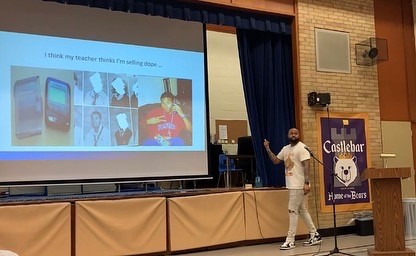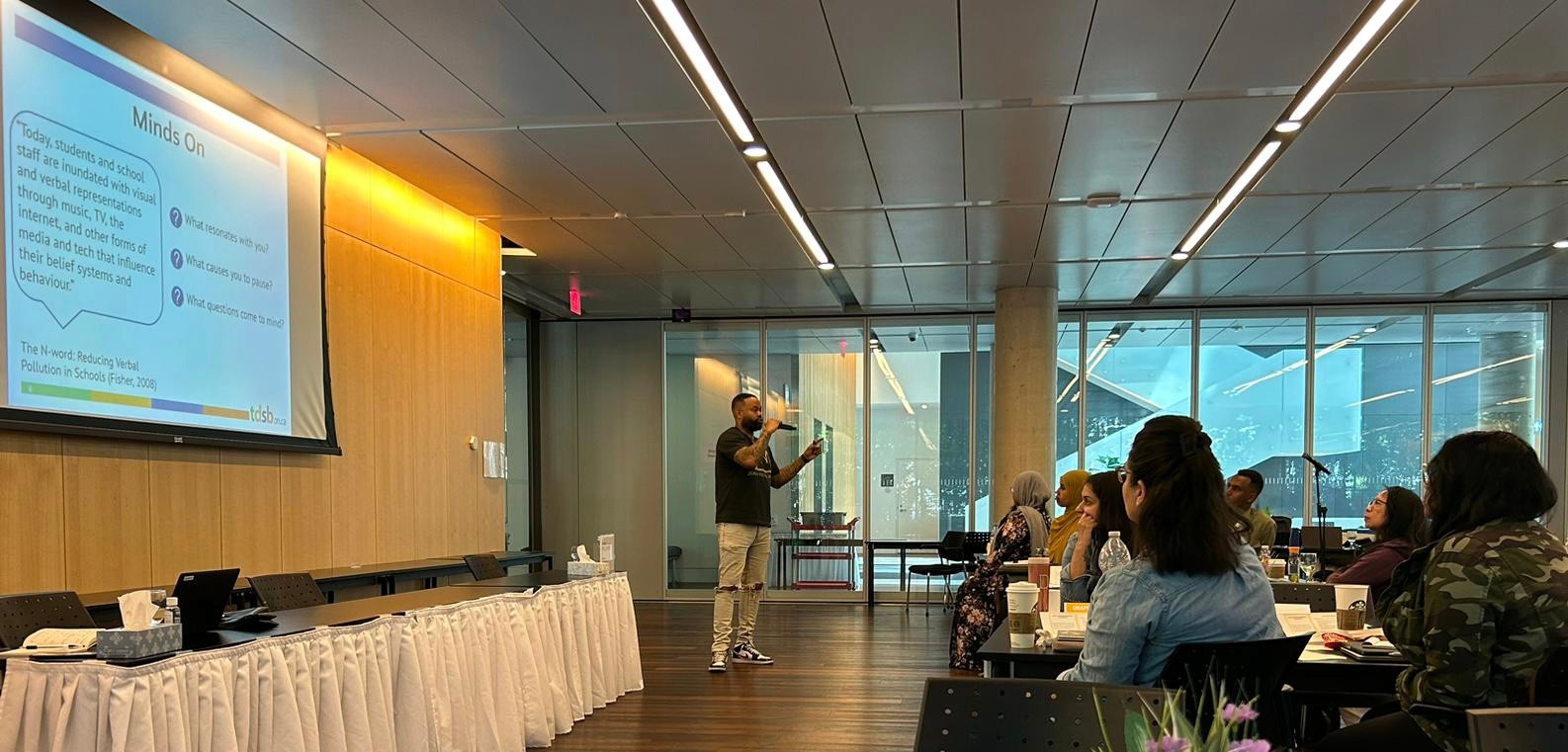We’re excited to introduce you to the always interesting and insightful Jay Williams . We hope you’ll enjoy our conversation with Jay below.
Alright, Jay thanks for taking the time to share your stories and insights with us today. Let’s start with education – we’d love to hear your thoughts about how we can better prepare students for a more fulfilling life and career.
There’s plenty that has to change in Education but I’ll do my best to keep it brief. Finding one’s purpose in life is essentially one of the most important things they can do and the educational system should play an integral role in supporting that. However, I do believe that there are multiple ways to arrive at the destination of success, however you see it. As a former middle school teacher, I recognized my students already feeling the pressures from families, parents and caregivers about their futures. As a result, I deemed it important for them to be encouraged to do what they feel attracted to and passionate about, which requires exploring different pathways. Post-secondary education, although considered the “safer” choice, is no longer the standard option; exposure to creative routes, trades and entrepreneurship needs to be introduced earlier so students can explore the possibilities of those career paths in addition to the traditional post-secondary careers.
In my opinion, education needs to focus on 21st century learning, as it is crucial to the learning of students in 2023 and beyond. This generation is composed of young people who are wildly digitally savvy and connected in a way that taps into intelligences and skills never explored before. While the digital explosion has resulted in a global access to information and an increase in young technologically inclined students, we continue to witness a growing disengagement between modern learners and the traditional learning and teaching models of the past. The present and future of education wholeheartedly needs an infusion of technology in curriculum, learning environments and learning objectives.
The Pandemic was a perfect example, which peeled back the curtain on a lot of discrepancies and inequities in education that some of us were aware of but many were not. The spotlight on existing racial and economic disparities became a hot button topic of conversation. Even before the outbreak, students in under-resourced/ oppressed populations – particularly predominantly Black and Indigenous – were already facing numerous inequalities and (racial) achievement gaps in everything from resources to student-teacher ratios and extracurriculars. The need for anti-oppressive and anti-racist education increased significantly. Since May of 2020, we have witnessed a dramatic increase in the response of ‘others’ in regards to anti-oppression awareness, namely anti-Black racism. This awareness coincides with the rise in polarizing conversation on Critical Race Theory and Culturally Relevant Responsive Pedagogy, both already popular and highly regarded pedagogies. This heightened awareness has allowed for Black and racialized students and families to finally feel as though they are seen and have a voice that is not only heard but respected in their respective school spaces. In my opinion, it is without question that equity, anti-oppression, anti-racist education is interwoven in all curriculum moving forward for all students and educators. “The beauty of anti-racism is that you don’t have to pretend to be free of racism to be an anti-racist. Anti-racism is the commitment to fight racism wherever you find it, including in yourself. And it’s the only way forward.”
– Ijeoma Oluo


As always, we appreciate you sharing your insights and we’ve got a few more questions for you, but before we get to all of that can you take a minute to introduce yourself and give our readers some of your back background and context?
What’s up, y’all? My name is Jay Williams. I am an educator, speaker, and education consultant based in Toronto, ON, Canada. I have has spoken on topics of race, Black masculinity, education, Hip Hop as Critical Relevant Responsive pedagogy, Culturally Relevant and Responsive Pedagogy (CRRP), and my journey navigating through it all. In addition, in my current role as Coordinator of Equity, at the Toronto District School Board (TDSB), I hold portfolios in Equity, Anti-racism, Anti-oppression, the Black Student Success and Excellence (BSSE) initiative, and Model Schools for Inner Cities (MISC).
My social media content speaks to my perspective of issues including race, culture, education, and social justice, with a focus on how Black males navigate and experience topics of masculinity, vulnerability and manhood. I believe in the importance of being a role model to engage, empower, motivate, and inspire not only those in education but society as a whole.
My hope is to continue engaging audiences and potential clients through my public speaking, learning programs, consulting and coaching on topics of race, DEI, unlearning and relearning. How I go about doing that is co-creates DEI strategies with my clients to create action plans that bolster a culture of Diversity, Equity and Inclusion for the entire organization in an authentic and intentional way that only I can. Understanding in many organizations accountability for diversity initiatives falls on underrepresented groups which can create undue burden on the individuals most impacted by unconscious bias and inequity, I am to dive head first into those brave, uncomfortable and often difficult conversations about diversity, equity and inclusion that often are had behind closed doors among leadership.


Where do you think you get most of your clients from?
To be honest, the best source of new clients has been two-fold: good old fashioned word of mouth and believe it or not, social media. Much of the recognition my work has received has been documented and shared across various platforms. The initial which went viral was during the pandemic when my friend and educator, Matthew Morris, and myself created QuarantineEd, a virtual chat for teachers to share ideas during emergency remote learning that was featured in the Toronto Star Newspaper. Like us, educators were at home struggling in isolation with ideas for keeping students engaged. Then, George Floyd was unalived which caused the focus and conversations to pivot to schools, the educational system and anti-Black racism. Being at the forefront of these conversations pushed me to continue engaging in this work as much as possible. I became extremely comfortable navigating spaces, having uncomfortable but necessary conversations, and doing this work on all levels. One client turned to two, then three, and to now expanding my work. I truly believe in providing clients with what they need and require; it’s not a cookie cutter service or partnership. The ultimate reminder that you’re on the right path: when former clients spin the block and enlist your services again. In other words, good work gets you good work.


What do you think helped you build your reputation within your market?
Similar to connecting with prospective clients, word of mouth and social media have both played integral roles in building my reputation thus far. Since I became an educator, the reaction has always been one of consistent shock. The common stereotype of the typical teacher persona; white middle aged man or women, that teaches math or physical education. Generally, they’re accented with the typical button up shirt, slacks and some sort of dress shoe – that’s not me. My physical characteristics alone set me apart. I am a 6 ‘3, 245 lbs, Black male covered in tattoos whose dress and apparel scream Hip Hop culture (i.e., jeans, t-shirt, couple gold chains, sneakers and sometimes a hat). In addition, I speak with a certain dialect and nuance that reflects my upbringing and identity. All of these intersectionalities that add to my identity as an educator have definitely raised eyebrows; however, the outcomes and results have spoken for themselves. I don’t fit the normative standards of the typical Science, English or Math teacher. When I transitioned into the space of coaching, consulting and public speaking, the response was the same. I made people believe in what I was saying through the sharing of my experiences, my knowledge of content – theory, policy and authenticity in a way that only I can. I think people naturally gravitate towards my vulnerability as it connects to many things we all have experience with – the education system. The idea that someone like me is speaking, sharing and drawing attention to, educating, calling out and calling in issues of Equity, Oppression and Systemic Racism resonates with folks on all levels in a way that permeates race, culture, religion, socioeconomic status and more.



Contact Info:
- Website: iamjaywilliams.com
- Instagram: @iam_j_will
- Linkedin: www.linkedin.com/in/iamjaywilliams
- Twitter: @mstrjaywill
- Linktree: https://linktr.ee/JayWilliams
- Threads: iam_j_will
Image Credits
CoryCash

